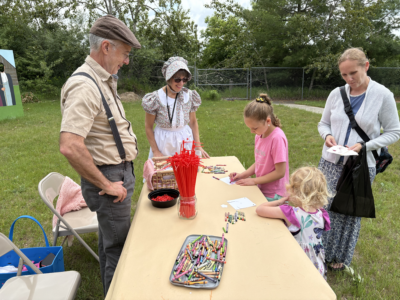Senior center to host Alzheimer’s support group
ALPENA– Alzheimer’s is a well-known disease, the most common form of dementia though progress of treatment of the disease would tell otherwise. Deteriorating the brain slowly that begins with general forgetfulness and worsens to forgetting how to swallow or breathe, no one has survived this disease.
The most progress made for patients is to delay the progress of the disease and minimize symptoms but there is no known cure for Alzheimer’s — preventive tips include eating healthy, exercise, mental stimulation and decrease the use of cigarettes and alcohol.
“Short-term memory loss is a big symptom,” Alpena Senior Citizens Center Director Annie Hepburn said. “Poor judgment, inability to manage a budget, misplacing things and being unable to retrace steps to find them and difficulty completing a familiar task at home or work are a few symptoms.”
The senior center informs seniors about Alzheimer’s and will begin a monthly support group for sufferers of early onset Alzheimer’s the second Thursday of each month. The first group will meet 1 p.m. Thursday at the senior center.
“You see a lot of people that get a new diagnosis and don’t know where to go so they reach out to us,” Hepburn said. “We need to help them on this journey. There is already support groups for caregivers, and we felt it was needed in the community.”
The disease has many possible causes, but it is unknown why it progresses at a slow rate and why it is conclusively irreversible. Alzheimer’s is not generally attributed to genetics, which are associated with vascular dementia, a form of dementia demonstrated in stroke patients.
Many attribute forgetfulness to the aches of getting old. Scientists differ that memory loss is not normal with old age, it is misdiagnosed form of dementia. Age, genetics, environment and lifestyle and medical conditions are all factors for those diagnosed.
Though a correlation has been found between heart failure and Alzheimer’s, where 80 percent of autopsies on patients who struggled with Alzheimer’s also had some form of heart failure.
Early onset Alzheimer’s makes up only 5 percent of those who are diagnosed with Alzheimer’s, most occur in ages 65 and older while early onset is classified as showing symptoms at ages 30-50 years.
“Psycho-social interventions (non-pharmacological approaches) should be tried as a first-line alternative to pharmacologic therapy for the treatment of dementia-related behaviors,” it states in a release of Alzheimer’s Association journals. “Unfortunately, large population-based trials rigorously supporting the evidence of benefit for non-pharmacological therapies are presently lacking.”
Studies have proven that maintaining strong social connections and continuing mental activity lowers the risk of developing Alzheimer’s. This is because a stronger connection between nerve cells in the brain develop when there is a higher social and mental stimulation.
Each county has a local chapter of the Alzheimer’s Association that can help direct the next steps to take for anyone with any form of dementia or have been diagnosed.
Beth Gohs can be reached via email at bgohs@thealpenanews.com or by phone at 358-5693.



